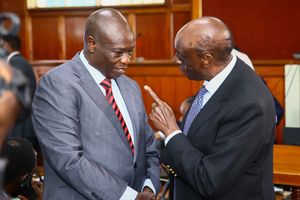Seek better deals at COP 29

The 29th session of the global climate change negotiations (COP 29) is happening in Baku, Azerbaijan in November.
The COP 29 conference next month is expected to be a pivotal event as nations from across the globe converge in Baku, Azerbaijan to discuss progress in climate conservation and mitigation. The event dubbed “Finance COP," will bring together representatives from over 200 countries to discuss new global funding mechanisms aimed at helping developing nations manage the effects of climate change.
Despite the commitments and promises made during COP 28, many African countries have yet to fully commit to reducing climate impacts, even after receiving funding from donors and voluntary financiers. These nations argue that, by contributing only 3 percent to global emissions, they are less affected by climate change and therefore should not be held to the same standards.
However, a recent news release from Aljazeera states that despite Africa’s disproportionate contribution to climate change, the effects are much more worse in the continent. This suggests that African countries should consider relooking at their budgets on mitigation and engage with high-polluting nations to combat global warming.
In addition to this, African countries must take a leading role in combating climate change by implementing strong policies, allocating resources, and addressing the effects of global warming within their borders.
To secure new deals and increased climate financing, African nations should present clear evidence of progress in reducing fossil fuel emissions.
At COP 29, these countries must negotiate for more funding, emphasizing that they bear a major burden from the world's major polluters.
They should prioritise climate change efforts, seeking to increase their annual climate finance by $1 trillion, which is ten times the current amount. African leaders must also push for new climate finance agreements that cover not only funding for low-carbon technologies and adaptation measures, like sea walls, but also for disaster recovery—despite heavy resistance from developed nations.
Although various approaches to climate financing exist, more needs be done to ensure Africa's interests in climate change are central to the discussions. The voices of African leaders must be unified and heard, as emphasized in the African Union's Constitutive Act, which calls for a collective stance on key issues affecting the continent.
Mr. Kiptoo is a communications practitioner. [email protected]




